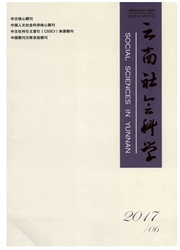

 中文摘要:
中文摘要:
双重效应原则是判断具有双重结果的行为是否具有道德合理性的准则。该原则既关注行为意图,又关注行为后果,将意图和后果纳入同一准则中,克服了义务论和后果论在评价行为方面的局限性,对解决义务论和后果论所遇到的道德困境具有重要意义。然而,双重效应原则因自身的局限性以及应用中面临的实际困难而遭受诸多批判。本文试图结合具体案例对双重效应原则进行分析。
 英文摘要:
英文摘要:
The principle of double effect is a principle of judging whether an action that brings about good result and bad result is morally rational. The principle concerns about both the intention and the result of an action, and incorporates the intention and the result into the same principle, so that it overcomes the limitations of deontology and consequentialism on judging an action, and plays an important role in solving the moral dilemmas that deontology and consequentialism encounter. However, because of its limitations and the difficulties in practical application, the principle of double effect is also subjected to lots of critiques. In this article, we try to analyze the principle of double effect combining with specific cases.
 同期刊论文项目
同期刊论文项目
 同项目期刊论文
同项目期刊论文
 期刊信息
期刊信息
